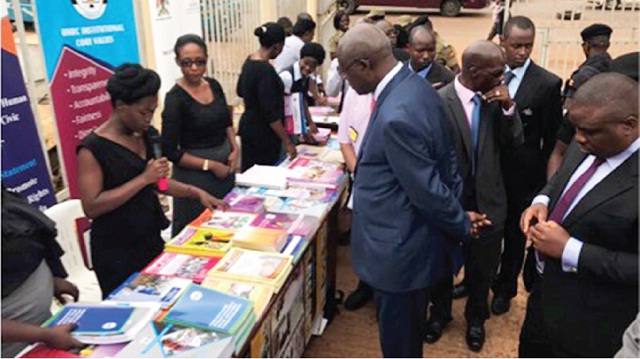
Challenges and future plans
The above achievements would have been felt more by the citizens if not for a few challenges. They are; continued urban bias of JLOS institutions which require increased focus on de-concentrating JLOS services; continued use of rudimentary technologies; capacity gaps in systems and processes; an increase in white collar crime; international crimes and sexual and gender based crimes; and continued congestion in the prisons.
In order to deal with these challenges, in years to come, the sector needs to contend with emerging issues that have informed the new priorities under the SDPIV. These include, among others, changing crime trends including cross border crimes; terrorism and cyber-crime; climate change and environmental issues that impact other national programmes; a high youth and child population; increasing numbers of refugees and programming to attain the SDGs.
The other key focus areas will rotate around increasing public trust from 49% to 55% and public satisfaction with JLOS services from 72% to 78% as well as increasing the index of judicial independence from 3.41 to 3.8. In addition, more focus will be on reducing case backlog from 24% to 9%, increasing districts with one stop JLOS frontline service points from 59.3% to 80%, reducing the crime rate, improving the corruption perception index from 0.25 to 0.30, reducing pre-trial detainees from 52% to 45% and reducing human rights violations, improving the ease of doing business index from 57.7 to 63 and increasing the index of the effi – ciency of legal framework in settling disputes from 3.8 to 4.1.
Funding the ongoing strategy
The overall cost of the SDPIV implementation is estimated at approx. Shs 5.709 trillion. Wages will consume Shs 1.617trillion; operational recurrent costs will take Shs 2.649 trillion while Shs 1.443 trillion will be required for the envisaged capital development and other much needed reforms to achieve the set targets. The Plan will be financed by public, donor and private resources with about 90% being Government and budget support donors and approx. 10% by other development partners and the private sector (Private-Public Partnership arrangement).
The Government and budget support donor funding will constitute a total of Shs5.172 trillion and Shs 0.587 trillion is anticipated to come from other development partners and private sector contribution. The anticipated impact of the investments in the SDPIV will include increased public trust in JLOS institutions; greater public satisfaction; increased independence of the judicial process; and an ‘A’ status of the national human rights body.

To achieve the above impact, the sector will over the next SDPIV period implement programmes, investments aimed at enhancing infrastructure and access to JLOS services; promoting the observance of human rights and fight – ing corruption; strengthening commercial justice and the environment for competitiveness.
Meanwhile, the other critical issue to note is that the JLOS SDPIV for the period 2017/2018 to 2020/2021 is a result of many months of preparation by the JLOS institutions that was characterized by extensive participation and consultation within the sector and with its stakeholders and partners.
This collaborative approach is based on the shared value that coming together was the beginning of the journey to achieve important targets. By working in line with the theme, one of the ultimate goals will be, to contribute to the transformation journey of this country to middle income status by 2020.
 The Independent Uganda: You get the Truth we Pay the Price
The Independent Uganda: You get the Truth we Pay the Price


